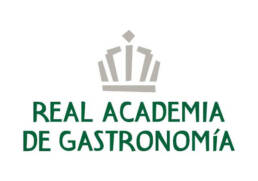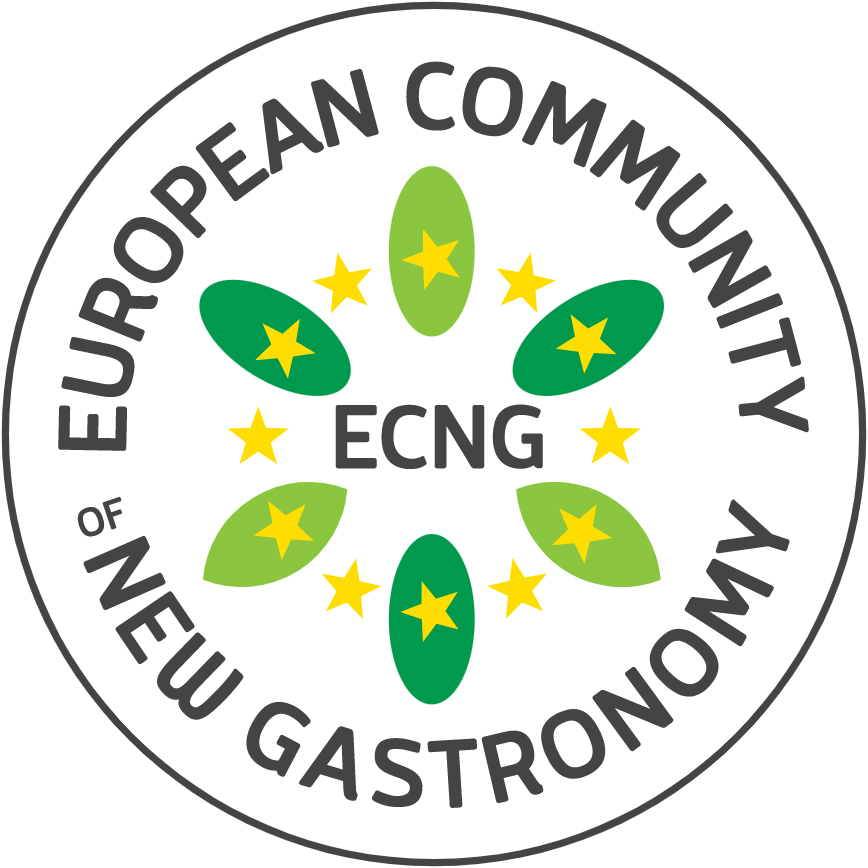
Reconversion of Gastronomy
RECONVERSION OF GASTRONOMY IN SPAIN AND AROUND THE WORLD
The content of this Report is mainly limited to the de-escalation phase, but it tries to provide a global vision of what gastronomy will have to be when it returns to normality.
After the Covid 19 pandemic, and taking into account the new trends, gastronomy will have to move from being a purely satisfactory activity, which generates pleasure, to become an essential activity to the human being in the 21st century. In a vision of the future, science and technology will have a fundamental role to play in the fight against the pandemic and in facilitating the reconversion of gastronomy.
Gastronomy is and should be one of the healthiest activities; without a doubt, one of the most supportive; and definitely one of those that can contribute most to the sustainable development of the planet.
And it should also remain one of the most pleasurable activities. Pleasure and enjoyment will continue to be one of the great reasons to go to a restaurant, bar, tavern or cocktail bar.
The European Parliament, in its Resolution of 12 March 2014 on European Gastronomic Heritage: Cultural and Educational Aspects (point R), defines gastronomy as follows: “Gastronomy is the combination of knowledge, experience, art and craft which provides a healthy and pleasurable eating experience”.
1. HEALTHY GASTRONOMY
Although the population will continue to value food as a key factor in avoiding possible diseases, the new concept of healthy gastronomy must be positive. The way we eat and what we eat must contribute to improving our health in general terms. After the pandemic, health will be permanently engraved in people’s minds. Also, at mealtimes.
In this great nucleus of the subject, we should see how the following aspects will evolve:
- Food production, agriculture, animal husbandry and fishing, which should generate increasingly healthy food and beverages. To this end, these activities have to be cost-effective and supported by the different Administrations.
- Food industry, which must take account of these health needs in order to process food, vegetables and animal meat, into non-perishable products, so that they are preserved over time without harming the health of consumers. However, it will have to be reformulated in terms of processing techniques, reducing additives and improving the transparency of front labelling so that it is easily intelligible.
- Distribution of both fresh and non-perishable products so that they reach regular customers in an appropriate manner. It has to cover not only transport channels but also central and municipal markets, supermarkets, shops and boutiques, including restaurants and private homes.
It would be no use if agri-food production generated healthier food, and industry made an effort to process it under the best possible conditions, if in the end, because of unaffordable prices, the final recipients (whether groups, restaurants or individuals) did not have access to this healthy food.
At the moment, there are practically no logistical and distribution problems, the problem will be in the prices and in the available income of citizens. There may be sufficient supplies at the points of sale, but consumers may not afford to buy them.
- Private homes, restaurants and canteens. It is vital that population has the necessary resources to eat healthily not only in their homes, but also in businesses and communities of all kinds. And in a fundamental way in hotel and catering establishments, from restaurants to eating houses.
All this so that Spaniards, guaranteeing hygiene and safety, can have access to a healthy and satisfactory diet; but also in order to generate an additional attraction for tourists, both national and international.
2. FAIR GASTRONOMY
This objective and this demand will have to be satisfied, basically, by incorporating the criterion of solidarity to the whole previous process.
- On the one hand, there is a need for social demand so that, in one way or another, this wave of solidarity that exists today can be transferred to the future.
Therefore, we must support all those who, within the framework of production, industry, distribution and markets, make an effort to generate products of proximity, helping to avoid depopulation and allowing healthy and responsibly produced products to reach the final recipient.
We must support solidarity, understood as support for what is “ours”. By buying food from Spain, we are helping our country, making it easier for our neighbours to have jobs and avoiding depopulation. In this regard, one model of success is Correos Market.
- Also, that the activity of social canteens, the solidarity contributions from the catering sector and all those initiatives that have been launched during the pandemic be maintained, so that no one in Spain lacks sufficient and healthy food.
- Solidarity must be expressed at all levels and must involve all the players in the food chain. For this reason, consumers should also show solidarity with companies and professionals in the catering industry, using new business models that are complementary to food on the premises, such as take away, home delivery and boutique business. City Councils could make an appeal in this regard.
3. SUSTAINABLE GASTRONOMY
It would be useless to make all the above effort if, over time and by not taking the appropriate measures, land and sea stopped producing sufficient or good quality food.
Therefore, throughout the process of food production, industry, distribution and consumption, the necessary measures must be taken to reduce pollution of air, water and ecosystems, and to avoid overexploitation of natural resources. This will be essential if we are to continue to enjoy adequate food in the future, both for ourselves and for future generations.
Following the recommendations of the Sustainable Development Goals of the 2030 Agenda adopted by the United Nations, all the issues raised must fall into the framework of sustainable development that guarantees the defence and upholding of land and human rights, allowing to maintain a proper balance in the world.
In this regard, citizens must also exercise responsible consumption, and avoid practices or products that do not comply with these requirements. We must all take part in this fight, supporting those activities and productions that are ecological and respectful of the environment.
It should be borne in mind that, perhaps, as a result of the “new normality”, plastics and packaging that were being removed because they were not environmentally friendly will be used again, but perhaps now they are necessary in order to avoid the virus.
4. PLEASURABLE GASTRONOMY
The pleasurable aspect of gastronomy has to extend from restaurants and food houses to private homes.
Grande Covian said that people will eat what they should, if they like it. Therefore, it is essential that healthy, fair and sustainable food will also have an adequate quality, from the sensory point of view, producing satisfaction.
Where possible, feeding should produce both sensory and psychic pleasure. It must be a factor of physical health and emotional balance.
Especially during de-escalation, but also when we reach the “new normality” people will want to have access to food that generates pleasure and satisfaction, and to share it with the rest of the world.
In a world full of uncertainties, gastronomy can and should be one of the activities that makes us a little happier, helping us to alleviate as much as possible the problems associated with “emotional hunger”. Gastronomy is and must be the “industry of happiness”.
5. LEGAL FRAMEWORK
With the legal uncertainty that this situation has generated, it is necessary to respond to the doubts and legal scenarios that arise for each of the agents involved in the catering sector.
The different activities, eating establishments and professionals in the sector require specific measures for each case. Therefore, it is of vital importance that law firms and specialised institutions will provide adequate professional advice.
Most restaurants and food services are facing a difficult economic situation, so it is imperative that they know about the various options available and what steps to take to best cope with the changes.
In recent weeks, the Government and the Autonomous Communities have approved many legal measures to deal with the cessation of activity. These measures include financial aid, rent payments, deferment of payments and debts, amendments in contracts and labour agreements… All these new regulations may be difficult to understand.
On the other hand, new business models and the increasing digitalisation of professional services can open debates when interpreting the current legislation.
With the help of a specialised person, gastronomy companies, restaurants, bars, taverns and cafeterias will be able to solve these legal issues and find ways to make their businesses profitable and sustainable.
6. CALL TO ACTION
The Royal Academy of Gastronomy would like to call on the Public Administrations (the Government, the Autonomous Communities and the City Councils) to address, with special interest, all the support and collaboration required by the gastronomy sector in general and, particularly, the hotel and restaurant industry.
According to the KPMG report referred to at the beginning of this writing, the entire gastronomic activity in Spain accounts for around 30% of the Gross Domestic Product. The food industry is, in principle, the most important one in Spain in terms of turnover.
There is no doubt that the hotel and catering industry is of paramount importance to job creation and tourism.
For all these reasons, it is essential to maintain the activity of all these companies, large, medium and small, and also the self-employed, who have managed, in recent years, to place Spanish cuisine at the highest level and make Spain one of the main tourist and gastronomic destinations.
The Royal Academy of Gastronomy understands that the Government’s policy is basic, but it also wants to appeal to the Autonomous Communities and, particularly, to the City Councils, which can take temporary measures to allow a minimum of continuity to hotels, restaurants, bars, taverns, cafeterias and cocktail bars.
So that they can overcome the dramatic situation caused by the pandemic and continue, albeit in a minor way, with their activities, ensuring that they can resume full operation in the future.
7.- THE ROLE OF RAG IN THE RECONVERSION OF GASTRONOMY
The RAG, like the other Royal Academies, has to address, propose and anticipate visions of the future, global focus, schemes and scenarios that allow the protagonists in each sector to know where they are moving and what their future possibilities are.
This is what the RAG is trying to do with this report and the document on “How to Restore the Catering Business”.
From its position as a reference institution in the sector, the RAG will urge the media, gastronomic guides, information spaces on the Internet and social networks to expressly support these new forms of business in the catering sector, making known the new gastronomic offers available at eating establishments.
And also, those who in some way support fair and sustainable gastronomy, acquiring local, ecological, handcrafted products and, in some way, maintaining that immense wave of gastronomic solidarity that has existed in Spain during these last few weeks.
Two years ago, with the support of the RAG, the European Association of Law and Gastronomy was incorporated in order to provide specific information to all professionals in the restaurant and general gastronomy sectors. This is now vitally important, given the innumerable rules and regulations that are being developed in response to the havoc wrought in the sector by the pandemic.
On this basis and according to this global vision, the evolution in the different territories must be carried out with the indispensable and necessary collaboration of the Academies of Gastronomy of the Autonomous Communities.
RAG’s knowledge about the evolution of the Spanish gastronomy in recent years until becoming one of the best and most outstanding in the world is now a key tool for analysing the future of the restaurant industry.
Publicações Relacionadas
14 de diciembre, 2020
Oeiras Nombrada Capital Europea de la Cultura Gastronómica
El pasado 9 de octubre, en el Palácio do Marquês, en Oeiras, tuvo lugar la ceremonia oficial de firma del protocolo de cooperación entre el Ayuntamiento... Capital Europea de la Cultura Gastronómica...

